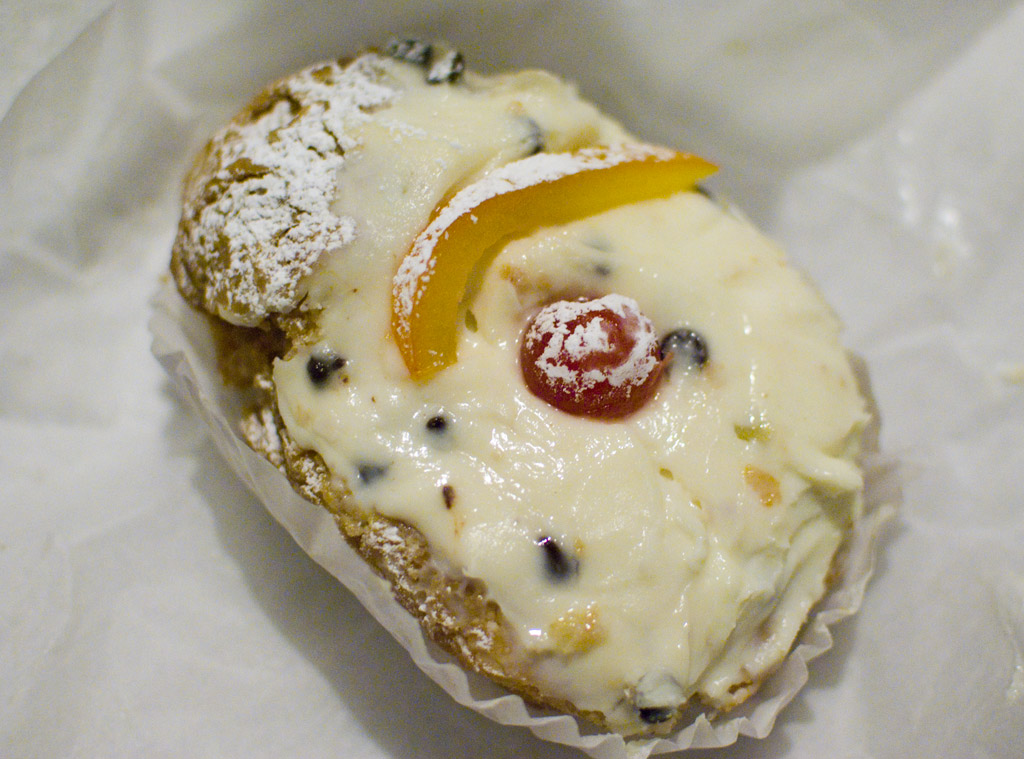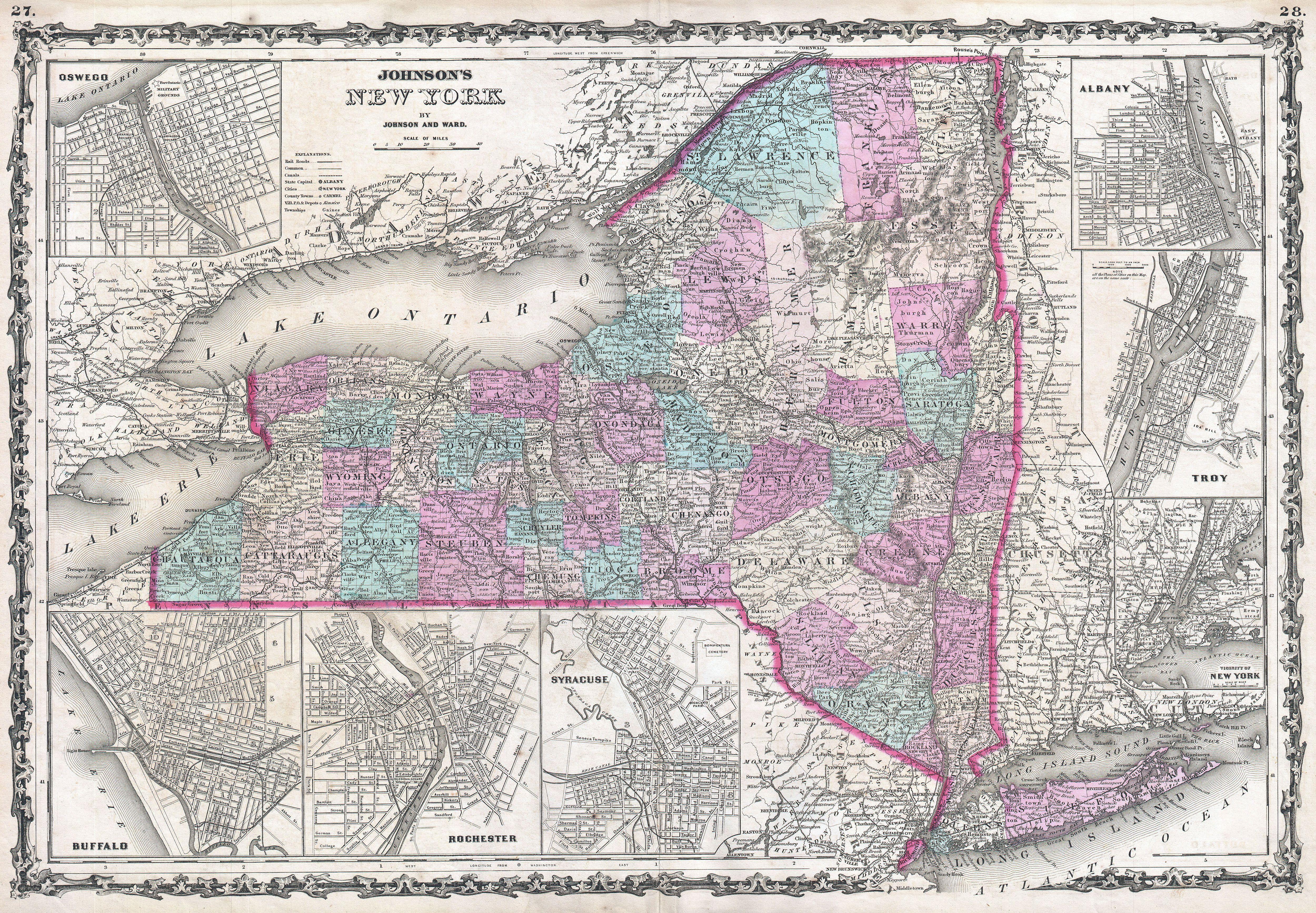This my friends, is a sfinge (sfince in Italiano). Flickr user Howard Wallfish shows off the colors of it nicely here, with the ricotta, orange peel, and cherry.
My family was not exceptionally into the Italian feast holidays. I suspect is has to do with the fact that the US was not a friendly place for Italians during the WWII era and many Italian Americans outside the major strongholds like Brooklyn decided it was better to fit in and provide a good life for their children than stick with feasts and other events.
St. Joseph's day, however, has always been a special thing for me. I always try to wear green for my grandmother on March 17 for St. Patrick and red on March 19 for my grandfather. They were always so close to each other, it only seems fitting that their respective races have their major holidays only two days apart. Even when I was 16 hours away from my extended family, it was my little way of putting a connection back together.
Most Italian American families have traditions that go back to the Middle Ages. When there were famines in Italy, especially in Southern Italy, the poor families relied on their faith to keep going. St. Joseph is the protector of the Holy Family (for those of you non-Christians out there that's the baby Jesus, the Virgin Mary, and himself). So the people would pray to him to end the famine, and they would celebrate when the famine ended by celebrating and making offerings with fish, with bread, and for dessert, sfingi, using the best of the foods that were preserved for use (waste not, want not). The candied orange peel would traditionally be the last bit of the oranges that were preserved over the winter to prevent scurvy, the cherries, soaked in alcohol to preserve them, and the ricotta, the last of the whey left over from making cheese from sheep, cow, goat, or Italian water buffalo milk.
Now before we get into the advice about gluten free sfinge, a word.
Sfinge is NOT Zeppole. Those of you who don't like ricotta filling can just suck it. Even the bakers admit they only make zeppole for St. Joseph's Day because they have to for pitiful American palates. If you're going to gorge on this many calories, you should go for the real thing. There, now that is out of my system...
The question becomes after that, what do you do if you're gluten free, and like most Italian-Americans, making food for the St. Joseph's Day feast?
Let's start with these:
Nichole from Gluten Free on a Shoestring has an amazing recipe for creme puffs that would give you the base recipe that you need in order to make the dough for real Sfinge. If you were being 100% traditional, you would want to fry them, but I think they're at least a little healthier if you bake them.
Then, the next step would be filling. Let's go back to the traditional filling: ricotta, chocolate, sugar, grated or candied orange peel, and crème de cacao (though I think you can do w/o it). There you go! Gluten free Sfingi di San Giuseppe.
If you want to admire some gorgeous Sfinge di San Giuseppe, you need to check out the blog at Pane, Burro e Marmellata.









